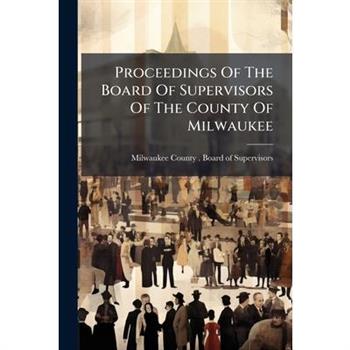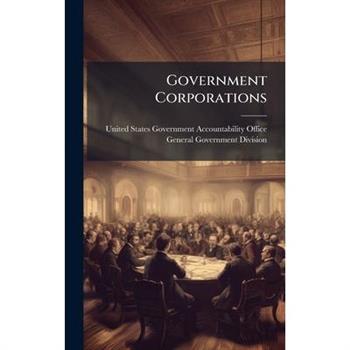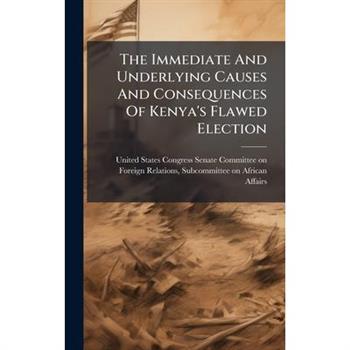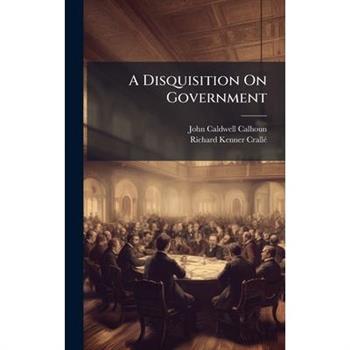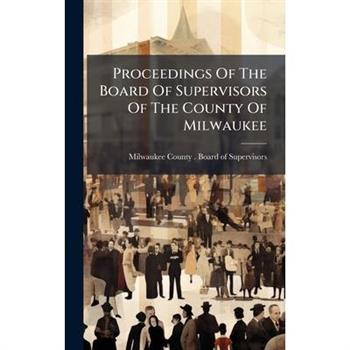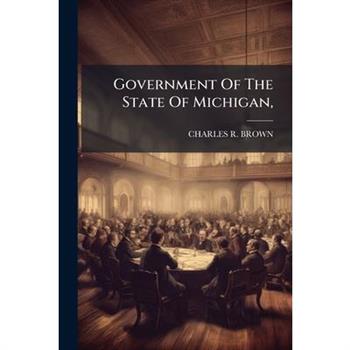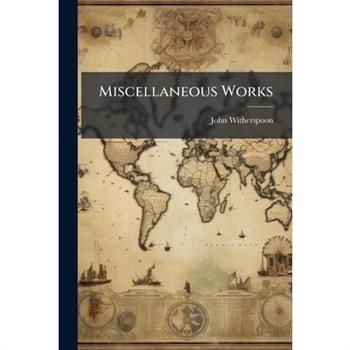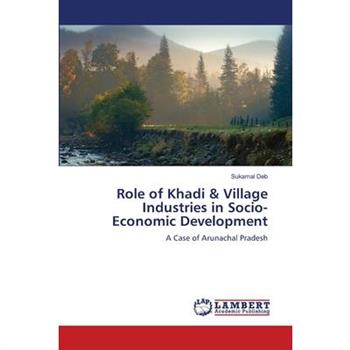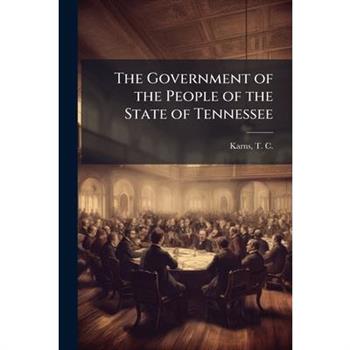Extending the Autonomous Region in Muslim Mindanao to the Moro Islamic Liberation Front a Catalyst for Peace
The purpose of this monograph is to demonstrate the conflict between the Moro Islamic Liberation Front and the Government of the Philippines is territorial and not religious in nature. To understand this conflict the past four-hundred years from the spread of Islam through the Sulu Islands and Mindanao, Spanish occupation, American occupation, and the Government of the Philippines rule from 1946 must be understood to put this complex adaptive problem in context. Extending the autonomous region in Muslim Mindanao serves a catalyst for peace in the region. The Memorandum of Agreement for Ancestral Domain (MOA-AD) deals with territorial rights. The MILF wants the territory their ancestors used to own before being pushed out by Christian migration to the island of Mindanao. An extension of the ARMM would give more land, governance, socio-economic development, and peace to the Muslims and Christians of the Southern Philippines. MILF and the GRP are interdependent. The MILF needs to break linkages to terrorism, make amends with the MNLF, and come to peace with the GRP. The GRP is dependent upon the MILF for any possibility of peace in the region.This work has been selected by scholars as being culturally important, and is part of the knowledge base of civilization as we know it. This work was reproduced from the original artifact, and remains as true to the original work as possible. Therefore, you will see the original copyright references, library stamps (as most of these works have been housed in our most important libraries around the world), and other notations in the work.This work is in the public domain in the United States of America, and possibly other nations. Within the United States, you may freely copy and distribute this work, as no entity (individual or corporate) has a copyright on the body of the work.As a reproduction of a historical artifact, this work may contain missing or blurred pages, poor pictures, errant marks, etc. Scholars believe, and we concur, that this work is important enough to be preserved, reproduced, and made generally available to the public. We appreciate your support of the preservation process, and thank you for being an important part of keeping this knowledge alive and relevant.
Blurred Strategy
The premise for this study evolved during Operation IRAQI FREEDOM (OIF). It stems from a perception that the combat plan for the Coalition force invasion worked brilliantly but noticeably absent was a detailed plan for transitioning to peace. This study conducts a thorough review of the current joint military doctrine and the interagency policy and guidance relevant to post-conflict operations, complex contingency and Military Operations Other Than War (MOOTW). It includes a case study of the formal USG civil-military interagency planning effort for OIF's post-conflict operations. It creatively employs a gap analysis research strategy in concert with a case study methodology, the research addresses its primary research question: Is joint military doctrine sufficiently robust to be adopted by the USG civil-military planning community as the framework for developing a single integrated doctrine for planning complex contingency and post-conflict operations? Several factors are cited as contributing reasons for the lack of a robust post-conflict plan: strategical errors by the Bush Administration, poor coordination between USG civil-military interagency planners, and the lack of a solid planning framework for complex contingency and post-conflict operations. The research concluded that a fundamental impediment to planning is fact that its departments and agencies do not focus and coordinate their activities effectively. There are a number of reasons degrading the integrated effort: unfamiliarity, ineffective coordination structures, incompatible approaches, under developed lines of responsibility, incompatible architecture, organizational dogmas, and resource constraints. This study recommends that civil-military planners establish a solid and well-resourced planning framework that includes well-defined lines of coordination, a collaborative architecture, a means for continuous professional education and training, and a single common integrated doctrine. The proposed fThis work has been selected by scholars as being culturally important, and is part of the knowledge base of civilization as we know it. This work was reproduced from the original artifact, and remains as true to the original work as possible. Therefore, you will see the original copyright references, library stamps (as most of these works have been housed in our most important libraries around the world), and other notations in the work.This work is in the public domain in the United States of America, and possibly other nations. Within the United States, you may freely copy and distribute this work, as no entity (individual or corporate) has a copyright on the body of the work.As a reproduction of a historical artifact, this work may contain missing or blurred pages, poor pictures, errant marks, etc. Scholars believe, and we concur, that this work is important enough to be preserved, reproduced, and made generally available to the public. We appreciate your support of the preservation process, and thank you for being an important part of keeping this knowledge alive and relevant.
Negotiable Collateral Damage
The United States, by virtue of its democratic system, finds itself torn at times between the defense of its physical security on one hand and the defense of civil liberties on the other. Through the democratic political process, the US government has developed a pattern of behavior for responding to threats to national security. This pattern of behavior includes six typical phases. The author labels these phases as threat or crisis, othering, response, normalcy, restoration, and remorse. After detecting a threat to national security, the primary national identity shrinks to identify "others" against which action can be taken. Those "others" in the history of the United States include aliens and French loyalists in the 1790's, Southern secessionists in the 1860's, Japanese descendants in the 1940's, American communists during the Second Red Scare, and radical Islamic terrorists after 9/11. Once the threat passes and normalcy resumes, the national identity expands again to encompass the previous "others" and the government restores civil liberties to all. Often, the process includes remorse over the action taken during the crisis.This work has been selected by scholars as being culturally important, and is part of the knowledge base of civilization as we know it. This work was reproduced from the original artifact, and remains as true to the original work as possible. Therefore, you will see the original copyright references, library stamps (as most of these works have been housed in our most important libraries around the world), and other notations in the work.This work is in the public domain in the United States of America, and possibly other nations. Within the United States, you may freely copy and distribute this work, as no entity (individual or corporate) has a copyright on the body of the work.As a reproduction of a historical artifact, this work may contain missing or blurred pages, poor pictures, errant marks, etc. Scholars believe, and we concur, that this work is important enough to be preserved, reproduced, and made generally available to the public. We appreciate your support of the preservation process, and thank you for being an important part of keeping this knowledge alive and relevant.
Homa
This paper is written to answer a research question posed by the USAF's Institute for National Strategic Studies (INSS). The desired general objective of the research is to discuss the strategic needs and military objectives in a particular region or country of how theater missile defense (TMD) supports or jeopardizes US National Missile Defense (NMD) strategy. This research examines, in detail, Israel's national missile defense program, called Homa (Hebrew for Fortress Wall). Chapter 1 discusses the fundamentals of missile defense and the reason why Israel's missile defense system affects US national security interests. Chapter 2 describes Israel's missile defense program, Homa, and explains why Israel's TMD program is, effectively, the first active two-tier National Missile Defense system. This description includes Israel's current, planned, and desired capabilities. Chapter 3 describes the confrontation (Iraq, Iran, Syria, and Libya) and potential confrontation states' (Pakistan, Egypt, Sudan, Saudi Arabia, and United Arab Emirates) ballistic missile threats to Israel.This work has been selected by scholars as being culturally important, and is part of the knowledge base of civilization as we know it. This work was reproduced from the original artifact, and remains as true to the original work as possible. Therefore, you will see the original copyright references, library stamps (as most of these works have been housed in our most important libraries around the world), and other notations in the work.This work is in the public domain in the United States of America, and possibly other nations. Within the United States, you may freely copy and distribute this work, as no entity (individual or corporate) has a copyright on the body of the work.As a reproduction of a historical artifact, this work may contain missing or blurred pages, poor pictures, errant marks, etc. Scholars believe, and we concur, that this work is important enough to be preserved, reproduced, and made generally available to the public. We appreciate your support of the preservation process, and thank you for being an important part of keeping this knowledge alive and relevant.
Maoist Insurgency in Nepal, 1996-2008
The purpose of this monograph is to show that US counterinsurgency doctrine would benefit from greater emphasis on social, cultural, and political aspects of the operating environment, using the case of the Maoist insurgency in Nepal as an example. The concept of fourth generation warfare provides context with its focus on the application of political, economic, and social networks in modern conflict. In approximately 12 years, from 1996 to 2008, the Communist Party of Nepal (Maoist), or CPN(M), waged an insurgency against the Nepalese government and gained majority rule through free elections. The Maoists, following Mao Zedong's theory of people's war, achieved a military stalemate against the Nepalese Army and negotiated a political settlement with the parliamentary parties that effectively ended the monarchy and resulted in a major electoral victory. Despite training and material support from the US, UK, and India, the Nepalese Army was unable to prevail in its counterinsurgency campaign. The Nepalese government failed to wage a coherent strategy to address the root social and economic causes of the conflict. The government relied on military and law enforcement to solve a problem that was rooted in social and political tensions. Power struggles between the monarchy and the parliament as well as among the political parties undermined the legitimacy of the Nepalese government and allowed the Maoists to win the support of the populace. The CPN(M) won the most seats in the April 2008 elections and took control of a coalition government, with the former Maoist leader, Pushpa Kamal Dahal, as Prime Minister. The new government faces challenges in integrating former combatants with the Nepalese Army and in satisfying former insurgent allies who still have unfulfilled agendas. The implications of the Maoist insurgency in Nepal for US counter-insurgency doctrine pertain to emphasis on certain ideas rather than requiring anything new. The primary lesson of the conflict isThis work has been selected by scholars as being culturally important, and is part of the knowledge base of civilization as we know it. This work was reproduced from the original artifact, and remains as true to the original work as possible. Therefore, you will see the original copyright references, library stamps (as most of these works have been housed in our most important libraries around the world), and other notations in the work.This work is in the public domain in the United States of America, and possibly other nations. Within the United States, you may freely copy and distribute this work, as no entity (individual or corporate) has a copyright on the body of the work.As a reproduction of a historical artifact, this work may contain missing or blurred pages, poor pictures, errant marks, etc. Scholars believe, and we concur, that this work is important enough to be preserved, reproduced, and made generally available to the public. We appreciate your support of the preservation process, and thank you for being an important part of keeping this knowledge alive and relevant.
Narcotics Counterinsurgency Dilemma
The purpose of this monograph is to investigate the relationship and linkages between insurgencies and the illicit narcotics trade in general; to examine the specific root causes and influences on the drug trade and insurgencies in Colombia and Afghanistan; to examine the historic background, strategic theory, and viability of the Plan Colombia model for application in Afghanistan; and to propose an alternate strategy for Afghanistan based on the significant differences in culture and governance between the two countries. Plan Colombia commenced in 1999 when the stability of the Colombian government reached a crisis level from the dual threats of an insurgency and the illegal drug trade. While the Marxist-inspired insurgency has been in existence and a significant problem for nearly the past fifty years, it originally focused on building its support base through ideological means. The nexus between illicit narcotics and the insurgency increased over the past forty years due to a symbiotic relationship that provides sustained funding for the insurgency and sustained sanctuary and resources for the illicit narcotics industry. The primary assumption behind Plan Colombia was that a disruption in the revenue base from illicit narcotics would reduce the ability of the insurgents to conduct operations and for a opportunity for successful engagement and negotiated settlement. Plan Colombia focuses on four specific lines of effort, which are the fight against illicit narcotics and organized crime, economic and social revitalization within Colombia, strengthening democratic institutions, and the disarmament, demobilization, and re-integration of the insurgent and guerilla organizations into Colombian society. In Afghanistan, the nascent government is also dealing with an insurgency that derives economic and social support from illicit narcotics, although the root of the narcotics issue is significantly different than in Colombia due to a history of warlordism, lack of a natiThis work has been selected by scholars as being culturally important, and is part of the knowledge base of civilization as we know it. This work was reproduced from the original artifact, and remains as true to the original work as possible. Therefore, you will see the original copyright references, library stamps (as most of these works have been housed in our most important libraries around the world), and other notations in the work.This work is in the public domain in the United States of America, and possibly other nations. Within the United States, you may freely copy and distribute this work, as no entity (individual or corporate) has a copyright on the body of the work.As a reproduction of a historical artifact, this work may contain missing or blurred pages, poor pictures, errant marks, etc. Scholars believe, and we concur, that this work is important enough to be preserved, reproduced, and made generally available to the public. We appreciate your support of the preservation process, and thank you for being an important part of keeping this knowledge alive and relevant.
Global Organization and Function
After World War I and II, the global society recognized how an individual country or dictator could destroy the overall human community. To prevent such an inhuman tragedy, the UN was established to foster international peace and security. Nonetheless, the world has been filled with more complicated dilemmas impeding global development and prosperity. It initiates variable international organizations dedicated to resolving global agendas: nuclear weapons, economic growth, public health, and environmental security. Special Series for Global Organization and Function focus on how each organization impacts on leveraging global issues and promotes communal goals of the human society. The world can't exist without reciprocal relationships between countries or none resolves critical dilemmas by itself. Global organizations suggest the best solution whenever troubles come up and provide a prospective future with successful achievement.
The Routledge Handbook of Religion and Nationalism
The Routledge Handbook of Religion and Nationalism comprehensively surveys the sub-disciplinary area of religious nationalism, an interaction between religion and nationalism.
Decentring Global Challenges in International Relations
This book examines contemporary global challenges from a decentring perspective, advancing an interdisciplinary conversation. It explains why traditional hegemonic approaches to global challenges are problematic, and conceptualises what a decentring approach to global challenges entails.
German Wartime Memory, American Exceptionalism, and Post-Cold War Blockbuster Cinema
This book excavates the diverse and mostly unnoticed political meanings made available to American and German audiences by the blockbuster films helmed by transplanted West German directors Roland Emmerich and Wolfgang Petersen.Through formal film analysis, broad consideration of American and German film criticism, and reflection on relevant political developments of the post-Cold War era, the book reveals how traces of Germany's experience of dictatorship and wartime destruction find inadvertent cinematic expression in ways that helped American and German moviegoers find orientation in the changed political and cultural landscape of a newly globalized world. To complement and deepen the analysis of the Hollywood output of Emmerich and Petersen, the book juxtaposes the creative product of these transplanted directors to examples of a converse cinematic phenomenon considered under the label, American Babelsberg, which encompasses World War Two-themed films shot by American directors in Germany utilizing the production facilities at Babelsberg. Focus here is placed particularly on two high-profile cinematic releases of the aughts, Valkyrie (2008), and Inglourious Basterds (2009). The magnetic attraction to, or nettlesome burden of, World War Two memories on these directors of American Babelsberg and German Hollywood is explained in this book by the entwined histories of Germans and Americans, the different challenges of national self-definition and renewal they faced in the post-Cold War world, and their long-standing and ongoing transatlantic discourse of political ideas and cultural ideals.This book will be of great interest to students and scholars of film studies, politics, popular culture, and contemporary history.
The Politics of Gun Control
This new edition brings together the latest developments and research in gun politics, policy, law, history, and criminology to provide a comprehensive and accessible source widely used by scholars, journalists, and in classrooms.
The Need For Cfius To Address Homeland Security Concerns
The BiblioGov Project is an effort to expand awareness of the public documents and records of the U.S. Government via print publications. In broadening the public understanding of government and its work, an enlightened democracy can grow and prosper. Ranging from historic Congressional Bills to the most recent Budget of the United States Government, the BiblioGov Project spans a wealth of government information. These works are now made available through an environmentally friendly, print-on-demand basis, using only what is necessary to meet the required demands of an interested public. We invite you to learn of the records of the U.S. Government, heightening the knowledge and debate that can lead from such publications.This work has been selected by scholars as being culturally important, and is part of the knowledge base of civilization as we know it. This work was reproduced from the original artifact, and remains as true to the original work as possible. Therefore, you will see the original copyright references, library stamps (as most of these works have been housed in our most important libraries around the world), and other notations in the work.This work is in the public domain in the United States of America, and possibly other nations. Within the United States, you may freely copy and distribute this work, as no entity (individual or corporate) has a copyright on the body of the work.As a reproduction of a historical artifact, this work may contain missing or blurred pages, poor pictures, errant marks, etc. Scholars believe, and we concur, that this work is important enough to be preserved, reproduced, and made generally available to the public. We appreciate your support of the preservation process, and thank you for being an important part of keeping this knowledge alive and relevant.
Trump to Harvard: Go Fund Yourself!
President Donald Trump has declared war against elite American universities, such as Harvard, and has threatened to cut off federal funding, end tax exemptions, and limit foreign student visas. Harvard has filed lawsuits and threatened additional legal action. The nation is deeply divided over this conflict. How should Americans who care deeply about universities, about antisemitism, and about the proper role of government respond to this dangerous rift? Alan Dershowitz poses four basic questions about the decision whether to defund or otherwise punish universities that discriminate against--or apply a double standard to--Jews as victims of discrimination.Is it ever permissible, as a matter of policy and academic freedom, to weaponize governmental funding of universities in an effort to influence their policies?Is it constitutional or otherwise legal to cut off governmental funding based on the content of university speech or policies?Is the Trump administration justified in defunding universities such as Harvard and Columbia for their failures to deal effectively with growing antisemitism on their campuses?Can the government deny student (or faculty) visas to individuals who advocate or promote antisemitism or other actions that violate American policies?Among the reforms Dershowitz advocates are a return to meritocratic admissions and hiring; a return to rigorous blind grading; the end of the non-meritocratic diversity, equity, and inclusion bureaucracies; the application of a single standard of free speech, academic freedom, and discipline; and the end of ethnic, gender, regional, religious, sexual preference, and other identity-based departments, studies, programs, and other advocacy centers that have become incubators for anti-Jewish bigotry.
Embassy Security
The BiblioGov Project is an effort to expand awareness of the public documents and records of the U.S. Government via print publications. In broadening the public understanding of government and its work, an enlightened democracy can grow and prosper. Ranging from historic Congressional Bills to the most recent Budget of the United States Government, the BiblioGov Project spans a wealth of government information. These works are now made available through an environmentally friendly, print-on-demand basis, using only what is necessary to meet the required demands of an interested public. We invite you to learn of the records of the U.S. Government, heightening the knowledge and debate that can lead from such publications.This work has been selected by scholars as being culturally important, and is part of the knowledge base of civilization as we know it. This work was reproduced from the original artifact, and remains as true to the original work as possible. Therefore, you will see the original copyright references, library stamps (as most of these works have been housed in our most important libraries around the world), and other notations in the work.This work is in the public domain in the United States of America, and possibly other nations. Within the United States, you may freely copy and distribute this work, as no entity (individual or corporate) has a copyright on the body of the work.As a reproduction of a historical artifact, this work may contain missing or blurred pages, poor pictures, errant marks, etc. Scholars believe, and we concur, that this work is important enough to be preserved, reproduced, and made generally available to the public. We appreciate your support of the preservation process, and thank you for being an important part of keeping this knowledge alive and relevant.
Elections
The BiblioGov Project is an effort to expand awareness of the public documents and records of the U.S. Government via print publications. In broadening the public understanding of government and its work, an enlightened democracy can grow and prosper. Ranging from historic Congressional Bills to the most recent Budget of the United States Government, the BiblioGov Project spans a wealth of government information. These works are now made available through an environmentally friendly, print-on-demand basis, using only what is necessary to meet the required demands of an interested public. We invite you to learn of the records of the U.S. Government, heightening the knowledge and debate that can lead from such publications.This work has been selected by scholars as being culturally important, and is part of the knowledge base of civilization as we know it. This work was reproduced from the original artifact, and remains as true to the original work as possible. Therefore, you will see the original copyright references, library stamps (as most of these works have been housed in our most important libraries around the world), and other notations in the work.This work is in the public domain in the United States of America, and possibly other nations. Within the United States, you may freely copy and distribute this work, as no entity (individual or corporate) has a copyright on the body of the work.As a reproduction of a historical artifact, this work may contain missing or blurred pages, poor pictures, errant marks, etc. Scholars believe, and we concur, that this work is important enough to be preserved, reproduced, and made generally available to the public. We appreciate your support of the preservation process, and thank you for being an important part of keeping this knowledge alive and relevant.
Somalia
The BiblioGov Project is an effort to expand awareness of the public documents and records of the U.S. Government via print publications. In broadening the public understanding of government and its work, an enlightened democracy can grow and prosper. Ranging from historic Congressional Bills to the most recent Budget of the United States Government, the BiblioGov Project spans a wealth of government information. These works are now made available through an environmentally friendly, print-on-demand basis, using only what is necessary to meet the required demands of an interested public. We invite you to learn of the records of the U.S. Government, heightening the knowledge and debate that can lead from such publications.This work has been selected by scholars as being culturally important, and is part of the knowledge base of civilization as we know it. This work was reproduced from the original artifact, and remains as true to the original work as possible. Therefore, you will see the original copyright references, library stamps (as most of these works have been housed in our most important libraries around the world), and other notations in the work.This work is in the public domain in the United States of America, and possibly other nations. Within the United States, you may freely copy and distribute this work, as no entity (individual or corporate) has a copyright on the body of the work.As a reproduction of a historical artifact, this work may contain missing or blurred pages, poor pictures, errant marks, etc. Scholars believe, and we concur, that this work is important enough to be preserved, reproduced, and made generally available to the public. We appreciate your support of the preservation process, and thank you for being an important part of keeping this knowledge alive and relevant.
Electronic Government
The BiblioGov Project is an effort to expand awareness of the public documents and records of the U.S. Government via print publications. In broadening the public understanding of government and its work, an enlightened democracy can grow and prosper. Ranging from historic Congressional Bills to the most recent Budget of the United States Government, the BiblioGov Project spans a wealth of government information. These works are now made available through an environmentally friendly, print-on-demand basis, using only what is necessary to meet the required demands of an interested public. We invite you to learn of the records of the U.S. Government, heightening the knowledge and debate that can lead from such publications.This work has been selected by scholars as being culturally important, and is part of the knowledge base of civilization as we know it. This work was reproduced from the original artifact, and remains as true to the original work as possible. Therefore, you will see the original copyright references, library stamps (as most of these works have been housed in our most important libraries around the world), and other notations in the work.This work is in the public domain in the United States of America, and possibly other nations. Within the United States, you may freely copy and distribute this work, as no entity (individual or corporate) has a copyright on the body of the work.As a reproduction of a historical artifact, this work may contain missing or blurred pages, poor pictures, errant marks, etc. Scholars believe, and we concur, that this work is important enough to be preserved, reproduced, and made generally available to the public. We appreciate your support of the preservation process, and thank you for being an important part of keeping this knowledge alive and relevant.
The Independent Whig [by J. Trenchard And T. Gordon]
"The Independent Whig" is a collection of essays by John Trenchard and Thomas Gordon, originally published in the early 18th century. These influential essays champion principles of liberty, freedom of speech, and limited government, advocating for individual rights and challenging corruption and tyranny. Written in clear and accessible language, "The Independent Whig" reflects the political and philosophical debates of its time, offering a powerful critique of arbitrary power and a defense of reasoned discourse. Its enduring relevance lies in its articulation of fundamental principles that continue to shape discussions about governance and individual autonomy.This work has been selected by scholars as being culturally important, and is part of the knowledge base of civilization as we know it. This work was reproduced from the original artifact, and remains as true to the original work as possible. Therefore, you will see the original copyright references, library stamps (as most of these works have been housed in our most important libraries around the world), and other notations in the work.This work is in the public domain in the United States of America, and possibly other nations. Within the United States, you may freely copy and distribute this work, as no entity (individual or corporate) has a copyright on the body of the work.As a reproduction of a historical artifact, this work may contain missing or blurred pages, poor pictures, errant marks, etc. Scholars believe, and we concur, that this work is important enough to be preserved, reproduced, and made generally available to the public. We appreciate your support of the preservation process, and thank you for being an important part of keeping this knowledge alive and relevant.
A National Id Card
The BiblioGov Project is an effort to expand awareness of the public documents and records of the U.S. Government via print publications. In broadening the public understanding of government and its work, an enlightened democracy can grow and prosper. Ranging from historic Congressional Bills to the most recent Budget of the United States Government, the BiblioGov Project spans a wealth of government information. These works are now made available through an environmentally friendly, print-on-demand basis, using only what is necessary to meet the required demands of an interested public. We invite you to learn of the records of the U.S. Government, heightening the knowledge and debate that can lead from such publications.This work has been selected by scholars as being culturally important, and is part of the knowledge base of civilization as we know it. This work was reproduced from the original artifact, and remains as true to the original work as possible. Therefore, you will see the original copyright references, library stamps (as most of these works have been housed in our most important libraries around the world), and other notations in the work.This work is in the public domain in the United States of America, and possibly other nations. Within the United States, you may freely copy and distribute this work, as no entity (individual or corporate) has a copyright on the body of the work.As a reproduction of a historical artifact, this work may contain missing or blurred pages, poor pictures, errant marks, etc. Scholars believe, and we concur, that this work is important enough to be preserved, reproduced, and made generally available to the public. We appreciate your support of the preservation process, and thank you for being an important part of keeping this knowledge alive and relevant.
Proceedings Of The Board Of Supervisors Of The County Of Milwaukee
This volume comprises the official proceedings of the Milwaukee County Board of Supervisors, offering a detailed record of the board's activities. It provides insights into local governance, decision-making processes, and the handling of county affairs. Researchers and historians interested in Wisconsin's local history, municipal law, or the evolution of county administration will find this collection invaluable. It serves as a primary source for understanding the challenges and priorities faced by Milwaukee County's leadership, as reflected in their discussions and resolutions. The "Proceedings Of The Board Of Supervisors Of The County Of Milwaukee" is a vital resource for anyone seeking to delve into the inner workings of a major Midwestern county's government.This work has been selected by scholars as being culturally important, and is part of the knowledge base of civilization as we know it. This work was reproduced from the original artifact, and remains as true to the original work as possible. Therefore, you will see the original copyright references, library stamps (as most of these works have been housed in our most important libraries around the world), and other notations in the work.This work is in the public domain in the United States of America, and possibly other nations. Within the United States, you may freely copy and distribute this work, as no entity (individual or corporate) has a copyright on the body of the work.As a reproduction of a historical artifact, this work may contain missing or blurred pages, poor pictures, errant marks, etc. Scholars believe, and we concur, that this work is important enough to be preserved, reproduced, and made generally available to the public. We appreciate your support of the preservation process, and thank you for being an important part of keeping this knowledge alive and relevant.
Letters To The Right Honourable Edmund Burke
In "Letters to the Right Honourable Edmund Burke," Joseph Priestley offers a robust and critical response to Edmund Burke's reflections on the French Revolution. Priestley, a prominent scientist, philosopher, and theologian, challenges Burke's conservative views and defends the revolutionary principles of liberty and reform. This collection of letters serves as a significant historical document, capturing a pivotal intellectual debate surrounding the tumultuous events in France. Priestley's insightful arguments provide a valuable perspective on the political and philosophical underpinnings of the revolution, making this work essential reading for anyone interested in the history of political thought and the legacy of the Enlightenment.This work has been selected by scholars as being culturally important, and is part of the knowledge base of civilization as we know it. This work was reproduced from the original artifact, and remains as true to the original work as possible. Therefore, you will see the original copyright references, library stamps (as most of these works have been housed in our most important libraries around the world), and other notations in the work.This work is in the public domain in the United States of America, and possibly other nations. Within the United States, you may freely copy and distribute this work, as no entity (individual or corporate) has a copyright on the body of the work.As a reproduction of a historical artifact, this work may contain missing or blurred pages, poor pictures, errant marks, etc. Scholars believe, and we concur, that this work is important enough to be preserved, reproduced, and made generally available to the public. We appreciate your support of the preservation process, and thank you for being an important part of keeping this knowledge alive and relevant.
The Global Posture Review Of United States Military Forces Stationed Overseas
The BiblioGov Project is an effort to expand awareness of the public documents and records of the U.S. Government via print publications. In broadening the public understanding of government and its work, an enlightened democracy can grow and prosper. Ranging from historic Congressional Bills to the most recent Budget of the United States Government, the BiblioGov Project spans a wealth of government information. These works are now made available through an environmentally friendly, print-on-demand basis, using only what is necessary to meet the required demands of an interested public. We invite you to learn of the records of the U.S. Government, heightening the knowledge and debate that can lead from such publications.This work has been selected by scholars as being culturally important, and is part of the knowledge base of civilization as we know it. This work was reproduced from the original artifact, and remains as true to the original work as possible. Therefore, you will see the original copyright references, library stamps (as most of these works have been housed in our most important libraries around the world), and other notations in the work.This work is in the public domain in the United States of America, and possibly other nations. Within the United States, you may freely copy and distribute this work, as no entity (individual or corporate) has a copyright on the body of the work.As a reproduction of a historical artifact, this work may contain missing or blurred pages, poor pictures, errant marks, etc. Scholars believe, and we concur, that this work is important enough to be preserved, reproduced, and made generally available to the public. We appreciate your support of the preservation process, and thank you for being an important part of keeping this knowledge alive and relevant.
Government Corporations
The BiblioGov Project is an effort to expand awareness of the public documents and records of the U.S. Government via print publications. In broadening the public understanding of government and its work, an enlightened democracy can grow and prosper. Ranging from historic Congressional Bills to the most recent Budget of the United States Government, the BiblioGov Project spans a wealth of government information. These works are now made available through an environmentally friendly, print-on-demand basis, using only what is necessary to meet the required demands of an interested public. We invite you to learn of the records of the U.S. Government, heightening the knowledge and debate that can lead from such publications.This work has been selected by scholars as being culturally important, and is part of the knowledge base of civilization as we know it. This work was reproduced from the original artifact, and remains as true to the original work as possible. Therefore, you will see the original copyright references, library stamps (as most of these works have been housed in our most important libraries around the world), and other notations in the work.This work is in the public domain in the United States of America, and possibly other nations. Within the United States, you may freely copy and distribute this work, as no entity (individual or corporate) has a copyright on the body of the work.As a reproduction of a historical artifact, this work may contain missing or blurred pages, poor pictures, errant marks, etc. Scholars believe, and we concur, that this work is important enough to be preserved, reproduced, and made generally available to the public. We appreciate your support of the preservation process, and thank you for being an important part of keeping this knowledge alive and relevant.
The Immediate And Underlying Causes And Consequences Of Kenya's Flawed Election
The BiblioGov Project is an effort to expand awareness of the public documents and records of the U.S. Government via print publications. In broadening the public understanding of government and its work, an enlightened democracy can grow and prosper. Ranging from historic Congressional Bills to the most recent Budget of the United States Government, the BiblioGov Project spans a wealth of government information. These works are now made available through an environmentally friendly, print-on-demand basis, using only what is necessary to meet the required demands of an interested public. We invite you to learn of the records of the U.S. Government, heightening the knowledge and debate that can lead from such publications.This work has been selected by scholars as being culturally important, and is part of the knowledge base of civilization as we know it. This work was reproduced from the original artifact, and remains as true to the original work as possible. Therefore, you will see the original copyright references, library stamps (as most of these works have been housed in our most important libraries around the world), and other notations in the work.This work is in the public domain in the United States of America, and possibly other nations. Within the United States, you may freely copy and distribute this work, as no entity (individual or corporate) has a copyright on the body of the work.As a reproduction of a historical artifact, this work may contain missing or blurred pages, poor pictures, errant marks, etc. Scholars believe, and we concur, that this work is important enough to be preserved, reproduced, and made generally available to the public. We appreciate your support of the preservation process, and thank you for being an important part of keeping this knowledge alive and relevant.
A Treatise of Monarchy
A Treatise of Monarchy, originally published in 1689, presents a detailed exploration of the principles and justifications for monarchical rule. Divided into two parts, the treatise first addresses the concept of monarchy in general, examining its theoretical underpinnings and historical precedents. The second part focuses specifically on the particular monarchy in question, offering a defense of its legitimacy and unique characteristics. This edition includes "A Vindication of the Said Treatise," further elaborating on the author's arguments and responding to contemporary criticisms. A significant work in political philosophy, "A Treatise of Monarchy" provides valuable insights into the debates surrounding governance, authority, and the relationship between rulers and the ruled during a pivotal period in European history. It remains relevant for scholars interested in the history of political thought and the evolution of monarchical systems.This work has been selected by scholars as being culturally important, and is part of the knowledge base of civilization as we know it. This work was reproduced from the original artifact, and remains as true to the original work as possible. Therefore, you will see the original copyright references, library stamps (as most of these works have been housed in our most important libraries around the world), and other notations in the work.This work is in the public domain in the United States of America, and possibly other nations. Within the United States, you may freely copy and distribute this work, as no entity (individual or corporate) has a copyright on the body of the work.As a reproduction of a historical artifact, this work may contain missing or blurred pages, poor pictures, errant marks, etc. Scholars believe, and we concur, that this work is important enough to be preserved, reproduced, and made generally available to the public. We appreciate your support of the preservation process, and thank you for being an important part of keeping this knowledge alive and relevant.
Pakistan's Federally Administered Tribal Areas (FATA) Challenge
The BiblioGov Project is an effort to expand awareness of the public documents and records of the U.S. Government via print publications. In broadening the public understanding of government and its work, an enlightened democracy can grow and prosper. Ranging from historic Congressional Bills to the most recent Budget of the United States Government, the BiblioGov Project spans a wealth of government information. These works are now made available through an environmentally friendly, print-on-demand basis, using only what is necessary to meet the required demands of an interested public. We invite you to learn of the records of the U.S. Government, heightening the knowledge and debate that can lead from such publications.This work has been selected by scholars as being culturally important, and is part of the knowledge base of civilization as we know it. This work was reproduced from the original artifact, and remains as true to the original work as possible. Therefore, you will see the original copyright references, library stamps (as most of these works have been housed in our most important libraries around the world), and other notations in the work.This work is in the public domain in the United States of America, and possibly other nations. Within the United States, you may freely copy and distribute this work, as no entity (individual or corporate) has a copyright on the body of the work.As a reproduction of a historical artifact, this work may contain missing or blurred pages, poor pictures, errant marks, etc. Scholars believe, and we concur, that this work is important enough to be preserved, reproduced, and made generally available to the public. We appreciate your support of the preservation process, and thank you for being an important part of keeping this knowledge alive and relevant.
The Works of the Right Hon. Edmund Burke, With a Biographical and Critical Introduction, by Henry Rogers, and Portrait After Sir Joshua Reynolds. VOL. I
Title: The Works of the Right Hon. Edmund Burke, with a biographical and critical introduction, by Henry Rogers, and portrait after Sir Joshua Reynolds.Publisher: British Library, Historical Print EditionsThe British Library is the national library of the United Kingdom. It is one of the world's largest research libraries holding over 150 million items in all known languages and formats: books, journals, newspapers, sound recordings, patents, maps, stamps, prints and much more. Its collections include around 14 million books, along with substantial additional collections of manuscripts and historical items dating back as far as 300 BC.The FICTION & PROSE LITERATURE collection includes books from the British Library digitised by Microsoft. The collection provides readers with a perspective of the world from some of the 18th and 19th century's most talented writers. Written for a range of audiences, these works are a treasure for any curious reader looking to see the world through the eyes of ages past. Beyond the main body of works the collection also includes song-books, comedy, and works of satire. ++++The below data was compiled from various identification fields in the bibliographic record of this title. This data is provided as an additional tool in helping to insure edition identification: ++++ British Library Burke, Edmund; 1837. 2 vol.; 8?簞. 12269.h.8.This work has been selected by scholars as being culturally important, and is part of the knowledge base of civilization as we know it. This work was reproduced from the original artifact, and remains as true to the original work as possible. Therefore, you will see the original copyright references, library stamps (as most of these works have been housed in our most important libraries around the world), and other notations in the work.This work is in the public domain in the United States of America, and possibly other nations. Within the United States, you may freely copy and distribute this work, as no entity (individual or corporate) has a copyright on the body of the work.As a reproduction of a historical artifact, this work may contain missing or blurred pages, poor pictures, errant marks, etc. Scholars believe, and we concur, that this work is important enough to be preserved, reproduced, and made generally available to the public. We appreciate your support of the preservation process, and thank you for being an important part of keeping this knowledge alive and relevant.
A Disquisition On Government
"A Disquisition on Government" is a treatise by John Caldwell Calhoun, a prominent American statesman and political theorist of the 19th century. Written before his death in 1850 and published posthumously, this work presents Calhoun's sophisticated and controversial theories on the nature of government, the rights of minorities, and the importance of constitutional limits on power. Calhoun delves into the concept of concurrent majority, arguing that decisions should require the consent of each distinct interest or portion of society, thereby preventing the tyranny of the majority. His exploration of states' rights and his defense of the Southern way of life are central themes, making this work a significant document in understanding the intellectual underpinnings of the antebellum South. "A Disquisition on Government" remains a key text for students of American political thought and history.This work has been selected by scholars as being culturally important, and is part of the knowledge base of civilization as we know it. This work was reproduced from the original artifact, and remains as true to the original work as possible. Therefore, you will see the original copyright references, library stamps (as most of these works have been housed in our most important libraries around the world), and other notations in the work.This work is in the public domain in the United States of America, and possibly other nations. Within the United States, you may freely copy and distribute this work, as no entity (individual or corporate) has a copyright on the body of the work.As a reproduction of a historical artifact, this work may contain missing or blurred pages, poor pictures, errant marks, etc. Scholars believe, and we concur, that this work is important enough to be preserved, reproduced, and made generally available to the public. We appreciate your support of the preservation process, and thank you for being an important part of keeping this knowledge alive and relevant.
Respublica Christiana, Sive Erotemata Christiano-politica De Republica
"Respublica Christiana, Sive Erotemata Christiano-politica De Republica" by Joseph Seybold explores the concept of a Christian republic through a series of questions and answers. This work delves into the intersection of political philosophy and Christian theology during the Renaissance, offering insights into early modern European thought. Seybold's text examines the ideal of a state governed by Christian principles, reflecting the political and religious debates of his time. It provides a valuable resource for understanding the historical relationship between faith and governance, appealing to scholars interested in political theory, religious history, and the intellectual climate of the Renaissance.This work has been selected by scholars as being culturally important, and is part of the knowledge base of civilization as we know it. This work was reproduced from the original artifact, and remains as true to the original work as possible. Therefore, you will see the original copyright references, library stamps (as most of these works have been housed in our most important libraries around the world), and other notations in the work.This work is in the public domain in the United States of America, and possibly other nations. Within the United States, you may freely copy and distribute this work, as no entity (individual or corporate) has a copyright on the body of the work.As a reproduction of a historical artifact, this work may contain missing or blurred pages, poor pictures, errant marks, etc. Scholars believe, and we concur, that this work is important enough to be preserved, reproduced, and made generally available to the public. We appreciate your support of the preservation process, and thank you for being an important part of keeping this knowledge alive and relevant.
Proceedings Of The Board Of Supervisors Of The County Of Milwaukee
This volume comprises the official proceedings of the Milwaukee County Board of Supervisors, offering a detailed record of the board's activities. It provides insights into local governance, decision-making processes, and the handling of county affairs. Researchers and historians interested in Wisconsin's local history, municipal law, or the evolution of county administration will find this collection invaluable. It serves as a primary source for understanding the challenges and priorities faced by Milwaukee County's leadership, as reflected in their discussions and resolutions. The "Proceedings Of The Board Of Supervisors Of The County Of Milwaukee" is a vital resource for anyone seeking to delve into the inner workings of a major Midwestern county's government.This work has been selected by scholars as being culturally important, and is part of the knowledge base of civilization as we know it. This work was reproduced from the original artifact, and remains as true to the original work as possible. Therefore, you will see the original copyright references, library stamps (as most of these works have been housed in our most important libraries around the world), and other notations in the work.This work is in the public domain in the United States of America, and possibly other nations. Within the United States, you may freely copy and distribute this work, as no entity (individual or corporate) has a copyright on the body of the work.As a reproduction of a historical artifact, this work may contain missing or blurred pages, poor pictures, errant marks, etc. Scholars believe, and we concur, that this work is important enough to be preserved, reproduced, and made generally available to the public. We appreciate your support of the preservation process, and thank you for being an important part of keeping this knowledge alive and relevant.
A Proposal For Putting Reform To The Vote Throughout The Kingdom
"A Proposal For Putting Reform To The Vote Throughout The Kingdom" is a powerful political pamphlet by Percy Bysshe Shelley, advocating for radical reform of the British political system. Written with passionate conviction, Shelley argues for extending voting rights to a wider segment of the population and empowering citizens to participate directly in shaping their government. This compelling work reflects the social and political ferment of the early 19th century, capturing the spirit of reform movements that sought to challenge entrenched power structures and create a more just and equitable society. Shelley's proposal offers a fascinating glimpse into the radical political thought of the Romantic era and remains relevant for anyone interested in the history of democracy and the ongoing struggle for political change.This work has been selected by scholars as being culturally important, and is part of the knowledge base of civilization as we know it. This work was reproduced from the original artifact, and remains as true to the original work as possible. Therefore, you will see the original copyright references, library stamps (as most of these works have been housed in our most important libraries around the world), and other notations in the work.This work is in the public domain in the United States of America, and possibly other nations. Within the United States, you may freely copy and distribute this work, as no entity (individual or corporate) has a copyright on the body of the work.As a reproduction of a historical artifact, this work may contain missing or blurred pages, poor pictures, errant marks, etc. Scholars believe, and we concur, that this work is important enough to be preserved, reproduced, and made generally available to the public. We appreciate your support of the preservation process, and thank you for being an important part of keeping this knowledge alive and relevant.
Government Of The State Of Michigan,
"Government Of The State Of Michigan" offers an in-depth look at the structure and function of Michigan's government. Authored by CHARLES R. BROWN, this book provides valuable insights into the state's political system, laws, and historical development. It explores the various branches of government, their roles, and their impact on the citizens of Michigan. This book is an essential resource for students, researchers, and anyone interested in understanding the intricacies of state governance within the United States.This work has been selected by scholars as being culturally important, and is part of the knowledge base of civilization as we know it. This work was reproduced from the original artifact, and remains as true to the original work as possible. Therefore, you will see the original copyright references, library stamps (as most of these works have been housed in our most important libraries around the world), and other notations in the work.This work is in the public domain in the United States of America, and possibly other nations. Within the United States, you may freely copy and distribute this work, as no entity (individual or corporate) has a copyright on the body of the work.As a reproduction of a historical artifact, this work may contain missing or blurred pages, poor pictures, errant marks, etc. Scholars believe, and we concur, that this work is important enough to be preserved, reproduced, and made generally available to the public. We appreciate your support of the preservation process, and thank you for being an important part of keeping this knowledge alive and relevant.
Commonwealth Of Massachusetts. Manual For The Use Of The General Court, Prepared By S.n. Gifford And G.a. Marden
This manual, titled "Commonwealth Of Massachusetts. Manual For The Use Of The General Court, Prepared By S.n. Gifford And G.a. Marden", serves as a comprehensive guide to the workings of the Massachusetts General Court. Prepared by S.N. Gifford and George Augustus Marden, it offers insights into the procedures, organization, and functions of the state's legislative body. This historical document provides a valuable resource for understanding the governmental processes within Massachusetts and offers a glimpse into the state's political history.This work has been selected by scholars as being culturally important, and is part of the knowledge base of civilization as we know it. This work was reproduced from the original artifact, and remains as true to the original work as possible. Therefore, you will see the original copyright references, library stamps (as most of these works have been housed in our most important libraries around the world), and other notations in the work.This work is in the public domain in the United States of America, and possibly other nations. Within the United States, you may freely copy and distribute this work, as no entity (individual or corporate) has a copyright on the body of the work.As a reproduction of a historical artifact, this work may contain missing or blurred pages, poor pictures, errant marks, etc. Scholars believe, and we concur, that this work is important enough to be preserved, reproduced, and made generally available to the public. We appreciate your support of the preservation process, and thank you for being an important part of keeping this knowledge alive and relevant.
Miscellaneous Works
Discover the intellectual breadth of John Witherspoon, a key figure in American history, in this collection of his "Miscellaneous Works." As a signatory of the Declaration of Independence and the sixth president of Princeton University, Witherspoon's influence extended far beyond the classroom. This compilation gathers his significant writings on political theory, religious thought, and moral philosophy, offering a comprehensive view of his contributions to the burgeoning American republic. Explore his insightful essays on liberty, government, and the role of religion in public life, all shaped by the ideals of the Scottish Enlightenment. From sermons that stirred the hearts of his congregation to treatises that influenced the founding fathers, Witherspoon's works provide invaluable context for understanding the intellectual currents that shaped the nation. "Miscellaneous Works" is an essential resource for anyone interested in the history of American political thought and the enduring legacy of one of its most influential figures.This work has been selected by scholars as being culturally important, and is part of the knowledge base of civilization as we know it. This work was reproduced from the original artifact, and remains as true to the original work as possible. Therefore, you will see the original copyright references, library stamps (as most of these works have been housed in our most important libraries around the world), and other notations in the work.This work is in the public domain in the United States of America, and possibly other nations. Within the United States, you may freely copy and distribute this work, as no entity (individual or corporate) has a copyright on the body of the work.As a reproduction of a historical artifact, this work may contain missing or blurred pages, poor pictures, errant marks, etc. Scholars believe, and we concur, that this work is important enough to be preserved, reproduced, and made generally available to the public. We appreciate your support of the preservation process, and thank you for being an important part of keeping this knowledge alive and relevant.
A Proposal For Putting Reform To The Vote Throughout The Kingdom
"A Proposal For Putting Reform To The Vote Throughout The Kingdom" is a powerful political pamphlet by Percy Bysshe Shelley, advocating for radical reform of the British political system. Written with passionate conviction, Shelley argues for extending voting rights to a wider segment of the population and empowering citizens to participate directly in shaping their government. This compelling work reflects the social and political ferment of the early 19th century, capturing the spirit of reform movements that sought to challenge entrenched power structures and create a more just and equitable society. Shelley's proposal offers a fascinating glimpse into the radical political thought of the Romantic era and remains relevant for anyone interested in the history of democracy and the ongoing struggle for political change.This work has been selected by scholars as being culturally important, and is part of the knowledge base of civilization as we know it. This work was reproduced from the original artifact, and remains as true to the original work as possible. Therefore, you will see the original copyright references, library stamps (as most of these works have been housed in our most important libraries around the world), and other notations in the work.This work is in the public domain in the United States of America, and possibly other nations. Within the United States, you may freely copy and distribute this work, as no entity (individual or corporate) has a copyright on the body of the work.As a reproduction of a historical artifact, this work may contain missing or blurred pages, poor pictures, errant marks, etc. Scholars believe, and we concur, that this work is important enough to be preserved, reproduced, and made generally available to the public. We appreciate your support of the preservation process, and thank you for being an important part of keeping this knowledge alive and relevant.
The Prince
The Prince by Niccol簷 Machiavelli is a foundational political treatise, written in 1513 and published posthumously in 1532. It is one of the most influential works on political power, realpolitik, and statecraft in Western history.The Prince is a pragmatic guide for political leaders on how to acquire, maintain, and consolidate power. Drawing on historical examples and Machiavelli's own diplomatic experience in Renaissance Italy, the book argues that rulers must often act immorally to preserve their state and authority. The end-political stability and control-justifies the means.
A Memoir Concerning The Political State Of Malta
"A Memoir Concerning The Political State Of Malta" by Sir John Joseph Dillon offers a detailed examination of the political landscape of Malta during a pivotal period in its history. Written with keen insight and a deep understanding of the intricacies of Maltese politics, this memoir provides invaluable context for understanding the challenges and opportunities that shaped the island's destiny.Dillon's work stands as a significant contribution to the historical record, offering scholars and enthusiasts alike a window into the past. This edition preserves the integrity of the original text, ensuring that Dillon's observations and insights remain accessible to contemporary readers. Explore the historical dynamics of Malta and gain a deeper appreciation for its enduring legacy through Dillon's insightful memoir.This work has been selected by scholars as being culturally important, and is part of the knowledge base of civilization as we know it. This work was reproduced from the original artifact, and remains as true to the original work as possible. Therefore, you will see the original copyright references, library stamps (as most of these works have been housed in our most important libraries around the world), and other notations in the work.This work is in the public domain in the United States of America, and possibly other nations. Within the United States, you may freely copy and distribute this work, as no entity (individual or corporate) has a copyright on the body of the work.As a reproduction of a historical artifact, this work may contain missing or blurred pages, poor pictures, errant marks, etc. Scholars believe, and we concur, that this work is important enough to be preserved, reproduced, and made generally available to the public. We appreciate your support of the preservation process, and thank you for being an important part of keeping this knowledge alive and relevant.
What Next And Next?
"What Next And Next?" presents a collection of speeches and writings by Richard Cobden, a prominent figure in 19th-century British politics and a leading advocate for free trade. This compilation offers insights into Cobden's influential ideas on political economy, international relations, and the role of government. His arguments for free trade and non-interventionism are particularly relevant in today's globalized world.Cobden's clear and persuasive prose makes his work accessible to modern readers interested in the history of economic thought and political reform. The book showcases his commitment to reason, progress, and the betterment of society through enlightened policies. It is a valuable resource for students, researchers, and anyone seeking a deeper understanding of the forces that shaped Victorian Britain and continue to influence contemporary debates.This work has been selected by scholars as being culturally important, and is part of the knowledge base of civilization as we know it. This work was reproduced from the original artifact, and remains as true to the original work as possible. Therefore, you will see the original copyright references, library stamps (as most of these works have been housed in our most important libraries around the world), and other notations in the work.This work is in the public domain in the United States of America, and possibly other nations. Within the United States, you may freely copy and distribute this work, as no entity (individual or corporate) has a copyright on the body of the work.As a reproduction of a historical artifact, this work may contain missing or blurred pages, poor pictures, errant marks, etc. Scholars believe, and we concur, that this work is important enough to be preserved, reproduced, and made generally available to the public. We appreciate your support of the preservation process, and thank you for being an important part of keeping this knowledge alive and relevant.
Role of Khadi & Village Industries in Socio-Economic Development
This Book is based on an extensive study and analysis of diverse sources of materials, which consist of official reports, published journals, and books supplemented by insights gained during the field work carried out for the PhD. The PhD thesis is serving as an input to this book. In my academic pursuit, I feel highly fortunate to receive support and inspiration from many. I extend my gratitude to various Government and Non-Government agencies whose materials and help were instrumental in developing this book brick by brick. I am especially grateful to the Directorate of Economics & Statistics, Directorate of Industries, Directorate of Textile & Handicrafts and Directorate of Information & Public Relations of GoAP, APKVIB, KVIC, the Librarians of State Central Library, D.N. Government College Library, and Reference Library at Itanagar. I am indebted to many respondents in the villages/areas surveyed, who shared their views and spent hours together in helping me to understand the intricacies of the KVI with which they have remained associated for a long time. I am grateful to the GoAP and the APKVIB authorities for granting permission to do this study along with my job.
Sustainable Coffee in Costa Rica
The book examines the intersection of politics, economic development, and environmental sustainability of the coffee industry in Costa Rica. Ecological impacts of coffee production are analyzed through the lens of mitigating damage to the region's biodiversity.Sustainable Coffee in Costa Rica: Solutions for People, Economic Development, and Biodiversity analyzes the intersection of politics, economic development, and environmental sustainability in coffee production. Coffee has long been central to understanding Costa Rican politics and society. From the mid-19th century to the mid-20th century, coffee was the most important economic engine for the country and coffee growers held a great deal of political power. Beginning with the historical and socio-economic importance of coffee in Costa Rica as well as the broader region, this book argues that long-term economic success for the Costa Rican coffee industry is enhanced and catalyzed by economic, social, political, and especially ecological sustainability. This book also explores the ecological effects of coffee growing, from creating plantations to the disposal of waste products, to examine how these effects can be mitigated to lessen the impact on the region's incredible biodiversity.
The Court V. the Voters
An urgent and gripping look at the erosion of voting rights and its implications for democracy, told through the stories of 9 Supreme Court decisions--and the next looming case In The Court v. The Voters, law professor Joshua Douglas takes us behind the scenes of significant cases in voting rights--some surprising and unknown, some familiar--to investigate the historic crossroads that have irrevocably changed our elections and the nation. In crisp and accessible prose, Douglas tells the story of each case, sheds light on the intractable election problems we face as a result, and highlights the unique role the highest court has played in producing a broken electoral system. Douglas charts infamous cases like: Bush v. Gore, which opened the door to many election law claimsCitizens United, which contributed to skewed representation--but perhaps not in the way you might thinkShelby County v. Holder, which gutted the vital protections of the Voting Rights ActCrawford v. Marion County Elections Board, which allowed states to enforce voter ID laws and make it harder for people to vote The Court v. The Voters powerfully reminds us of the tangible, real-world effects from the Court's voting rights decisions. While we can--and should--lament the democracy that might have been, Douglas argues that we can--and should--double down in our efforts to protect the right to vote.
The New Heresy
The New Heresy, by David Urquhart, is a compelling exploration of religious and political thought in 19th-century England. In two letters addressed to the Bishop of Oxford, Urquhart critiques what he identifies as the substitution of mere proselytism for genuine righteousness. This work delves into the core of religious integrity and its impact on society.Urquhart expands his analysis with two additional essays: "Change In A Nation Imperceptible, Being Caused A Change In Each Man," which examines the subtle transformations within a society, and an excerpt concerning pledges given to troops. This combination of religious critique and political commentary offers a comprehensive view of Urquhart's concerns about the moral and societal trajectory of his time. This book is valuable for those interested in religious history, political philosophy, and the social dynamics of Victorian England.This work has been selected by scholars as being culturally important, and is part of the knowledge base of civilization as we know it. This work was reproduced from the original artifact, and remains as true to the original work as possible. Therefore, you will see the original copyright references, library stamps (as most of these works have been housed in our most important libraries around the world), and other notations in the work.This work is in the public domain in the United States of America, and possibly other nations. Within the United States, you may freely copy and distribute this work, as no entity (individual or corporate) has a copyright on the body of the work.As a reproduction of a historical artifact, this work may contain missing or blurred pages, poor pictures, errant marks, etc. Scholars believe, and we concur, that this work is important enough to be preserved, reproduced, and made generally available to the public. We appreciate your support of the preservation process, and thank you for being an important part of keeping this knowledge alive and relevant.
The New Heresy
The New Heresy, by David Urquhart, is a compelling exploration of religious and political thought in 19th-century England. In two letters addressed to the Bishop of Oxford, Urquhart critiques what he identifies as the substitution of mere proselytism for genuine righteousness. This work delves into the core of religious integrity and its impact on society.Urquhart expands his analysis with two additional essays: "Change In A Nation Imperceptible, Being Caused A Change In Each Man," which examines the subtle transformations within a society, and an excerpt concerning pledges given to troops. This combination of religious critique and political commentary offers a comprehensive view of Urquhart's concerns about the moral and societal trajectory of his time. This book is valuable for those interested in religious history, political philosophy, and the social dynamics of Victorian England.This work has been selected by scholars as being culturally important, and is part of the knowledge base of civilization as we know it. This work was reproduced from the original artifact, and remains as true to the original work as possible. Therefore, you will see the original copyright references, library stamps (as most of these works have been housed in our most important libraries around the world), and other notations in the work.This work is in the public domain in the United States of America, and possibly other nations. Within the United States, you may freely copy and distribute this work, as no entity (individual or corporate) has a copyright on the body of the work.As a reproduction of a historical artifact, this work may contain missing or blurred pages, poor pictures, errant marks, etc. Scholars believe, and we concur, that this work is important enough to be preserved, reproduced, and made generally available to the public. We appreciate your support of the preservation process, and thank you for being an important part of keeping this knowledge alive and relevant.
The American Citizen's Manual
"The American Citizen's Manual, Volume 1" by Worthington Chauncey Ford is a comprehensive guide to the principles and practices of American citizenship. This volume explores the foundations of the U.S. government, the rights and responsibilities of citizens, and the historical context that shaped the nation. Designed to educate and engage, this manual offers insights into the workings of democracy and the importance of civic participation. A valuable resource for students, educators, and anyone seeking a deeper understanding of American civic life, this book remains relevant for its detailed examination of the foundations of American government and citizenship. It offers a historical perspective on the ongoing experiment of American democracy.This work has been selected by scholars as being culturally important, and is part of the knowledge base of civilization as we know it. This work was reproduced from the original artifact, and remains as true to the original work as possible. Therefore, you will see the original copyright references, library stamps (as most of these works have been housed in our most important libraries around the world), and other notations in the work.This work is in the public domain in the United States of America, and possibly other nations. Within the United States, you may freely copy and distribute this work, as no entity (individual or corporate) has a copyright on the body of the work.As a reproduction of a historical artifact, this work may contain missing or blurred pages, poor pictures, errant marks, etc. Scholars believe, and we concur, that this work is important enough to be preserved, reproduced, and made generally available to the public. We appreciate your support of the preservation process, and thank you for being an important part of keeping this knowledge alive and relevant.
The Government of the People of the State of Tennessee
"The Government of the People of the State of Tennessee" by T.C. Karns offers a detailed examination of Tennessee's governmental structure as it stood in the late 19th century. This book provides valuable insights into the functions, powers, and responsibilities of the state's various branches and departments. It serves as a comprehensive guide to understanding the intricacies of Tennessee's political system, offering a clear and systematic overview of its constitution and laws. This historical text is an essential resource for students, researchers, and anyone interested in the evolution of state governance in the United States. Karns's work provides a window into the past, shedding light on the foundations of Tennessee's contemporary political landscape. Its enduring value lies in its detailed exposition and its contribution to the understanding of American political history.This work has been selected by scholars as being culturally important, and is part of the knowledge base of civilization as we know it. This work was reproduced from the original artifact, and remains as true to the original work as possible. Therefore, you will see the original copyright references, library stamps (as most of these works have been housed in our most important libraries around the world), and other notations in the work.This work is in the public domain in the United States of America, and possibly other nations. Within the United States, you may freely copy and distribute this work, as no entity (individual or corporate) has a copyright on the body of the work.As a reproduction of a historical artifact, this work may contain missing or blurred pages, poor pictures, errant marks, etc. Scholars believe, and we concur, that this work is important enough to be preserved, reproduced, and made generally available to the public. We appreciate your support of the preservation process, and thank you for being an important part of keeping this knowledge alive and relevant.
The World as It Is
"The World as It Is" offers a penetrating glimpse into the societal and political landscapes of its time. Written with a sharp, critical eye, Buchanan provides a thought-provoking analysis of the prevailing norms, power structures, and inherent contradictions within the world order. This book serves as a valuable historical document, capturing the sentiments and intellectual debates of the late 19th century. Buchanan's incisive observations on social dynamics and political maneuvering remain relevant, inviting contemporary readers to reflect on the enduring challenges of building a just and equitable society.This work has been selected by scholars as being culturally important, and is part of the knowledge base of civilization as we know it. This work was reproduced from the original artifact, and remains as true to the original work as possible. Therefore, you will see the original copyright references, library stamps (as most of these works have been housed in our most important libraries around the world), and other notations in the work.This work is in the public domain in the United States of America, and possibly other nations. Within the United States, you may freely copy and distribute this work, as no entity (individual or corporate) has a copyright on the body of the work.As a reproduction of a historical artifact, this work may contain missing or blurred pages, poor pictures, errant marks, etc. Scholars believe, and we concur, that this work is important enough to be preserved, reproduced, and made generally available to the public. We appreciate your support of the preservation process, and thank you for being an important part of keeping this knowledge alive and relevant.






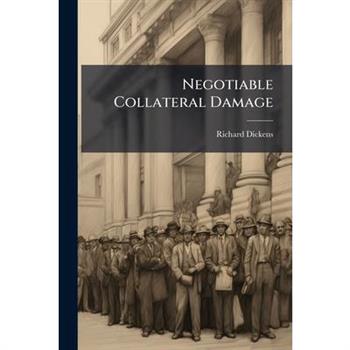

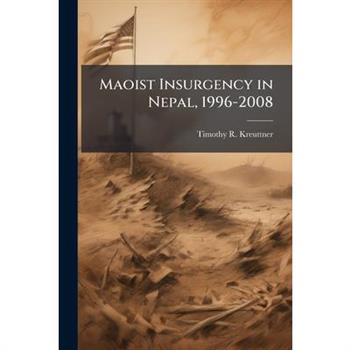

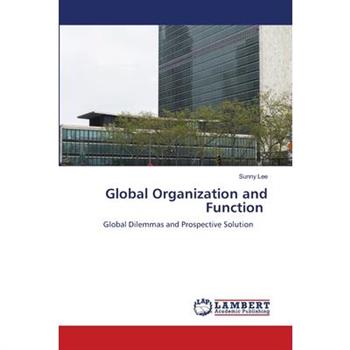

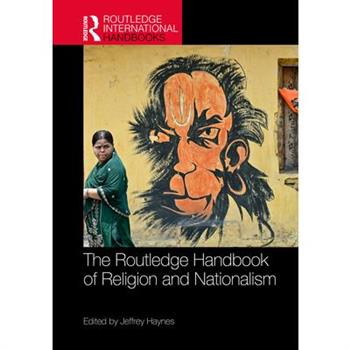






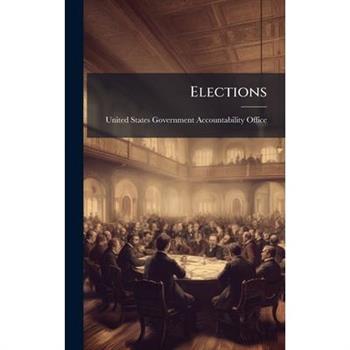
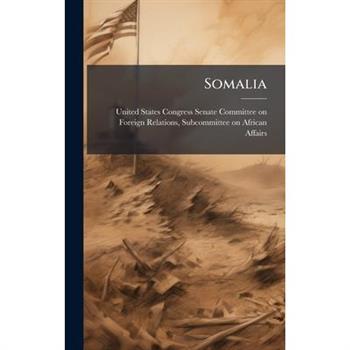
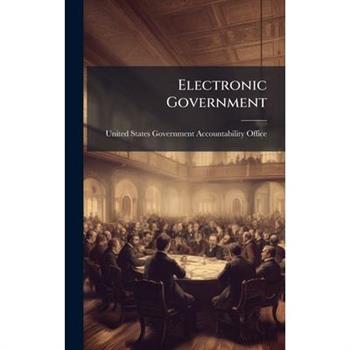
![The Independent Whig [by J. Trenchard And T. Gordon] The Independent Whig [by J. Trenchard And T. Gordon]](https://cdn.kingstone.com.tw/english/images/product/7073/9781024357073m.jpg?Q=80797)

